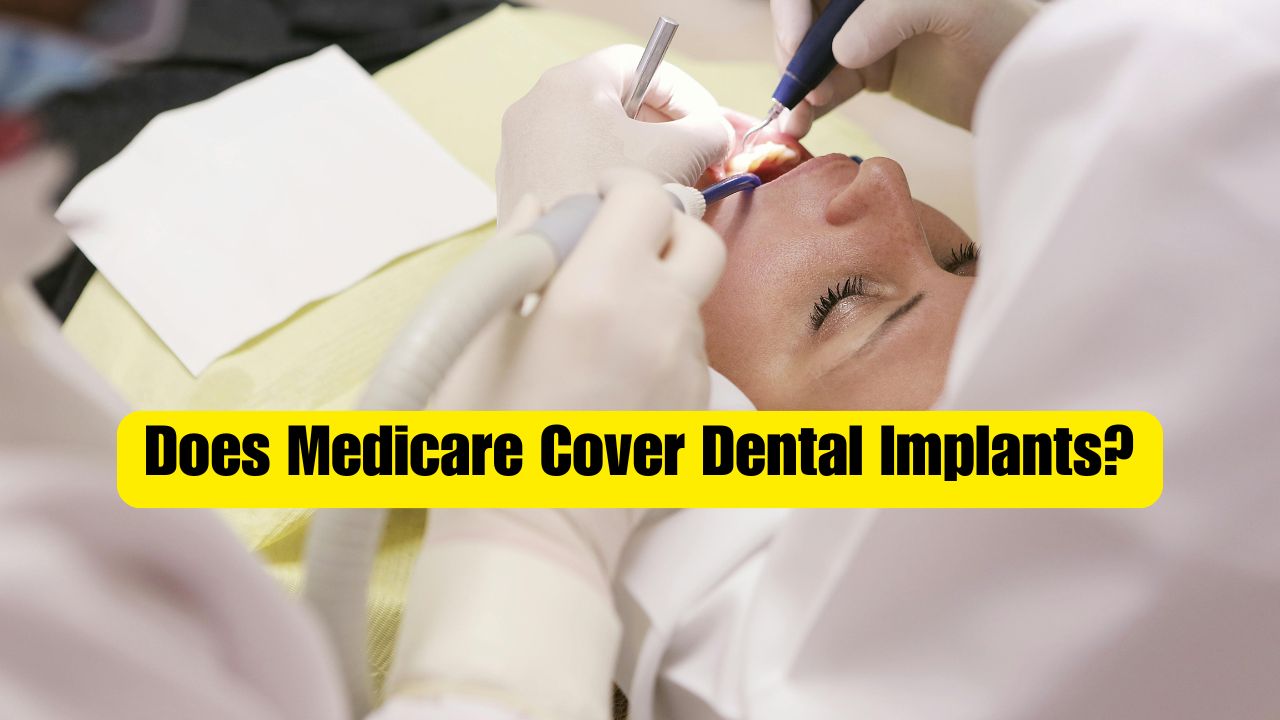Dental health is crucial to overall well-being, yet many people remain unsure about what services are covered under their health plans. For seniors and individuals relying on Medicare, understanding whether dental implants are included in coverage can be challenging. At Health Tips Buddy, In This article will provide an in-depth analysis of Medicare’s dental coverage, focusing on the inclusion (or exclusion) of dental implants.
Understanding Medicare’s Dental Coverage
Does Medicare Cover Dental Procedures?
Medicare, the federal health insurance program primarily for individuals aged 65 and older, is divided into several parts:
- Medicare Part A (Hospital Insurance)
- Medicare Part B (Medical Insurance)
- Medicare Part C (Medicare Advantage)
- Medicare Part D (Prescription Drug Coverage)
Original Medicare (Parts A and B) generally does not cover routine dental care, including cleanings, fillings, or extractions. However, some Medicare Advantage plans (Part C) may include broader dental benefits, depending on the provider.
Are Dental Implants Included in Standard Medicare?
Under Original Medicare, dental implants are typically not covered. Medicare Part A may only cover dental services if they are deemed medically necessary as part of a covered hospital procedure. For example, dental work required before a major surgery might be covered, but implants for cosmetic or restorative purposes will not be included.
Medicare Advantage Plans and Dental Implants
What Are Medicare Advantage Plans?
Medicare Advantage plans are offered by private insurers and approved by Medicare. These plans often provide additional benefits not included in Original Medicare, such as:
- Vision
- Hearing
- Prescription drugs
- Dental care
Do Medicare Advantage Plans Cover Dental Implants?
While some Medicare Advantage plans offer coverage for dental implants, this varies significantly between plans. Insurers often impose limitations such as:
- Annual maximum benefits
- Coinsurance or copayments
- Waiting periods
- Restricted provider networks
To confirm whether implants are covered under a specific Medicare Advantage plan, review the Summary of Benefits or contact the insurance provider directly.
Costs Associated with Dental Implants
What Are Dental Implants?
A dental implant is a permanent solution for replacing missing teeth. The procedure typically involves:
- Placement of a titanium post into the jawbone.
- Abutment attachment to secure the implant.
- Custom crown installation to mimic a natural tooth.
Out-of-Pocket Costs Without Coverage
Without insurance, the cost of dental implants can range from $3,000 to $6,000 per tooth, depending on factors such as:
- Geographic location
- Dentist expertise
- Additional procedures (e.g., bone grafts)
For many seniors, these high costs necessitate exploring coverage options or alternative financing methods.
Alternative Coverage Options for Dental Implants
Supplemental Dental Insurance Plans
If Medicare Advantage doesn’t meet your dental needs, consider enrolling in a standalone dental insurance plan. Many of these plans offer partial coverage for dental implants, often with annual maximum benefits between $1,000 and $2,500.
Dental Discount Plans
Dental discount plans are another option for reducing the cost of implants. These programs provide discounted rates at participating dentists but do not function as insurance.
Health Savings Accounts (HSAs)
For individuals with high-deductible health plans, HSAs can be a tax-advantaged way to save for out-of-pocket dental expenses, including implants.
How to Determine Your Coverage for Dental Implants
Steps to Verify Your Coverage
- Review Your Medicare Plan Documents: Check the policy details for dental benefits and exclusions.
- Contact Your Insurance Provider: Speak directly with a representative to confirm whether dental implants are covered.
- Consult Your Dentist: Obtain a detailed treatment plan and cost estimate to share with your insurance provider.
When to Consider Alternative Solutions
If Medicare does not cover your implants, weigh the benefits of supplemental plans, dental discount programs, or financing options to make the procedure more affordable.
Conclusion: Navigating Medicare and Dental Implants
In summary, Original Medicare does not cover dental implants except in rare, medically necessary cases. However, some Medicare Advantage plans and supplemental dental insurance options may provide partial coverage. It’s essential to thoroughly research your plan and explore alternative options to ensure you receive the care you need without excessive financial burden.
For more detailed guidance and to explore plan options tailored to your needs, consult a trusted Medicare specialist or insurance advisor.
